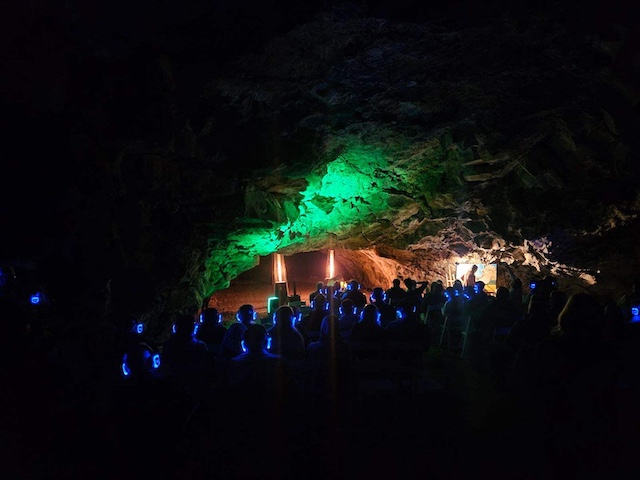Dolphins’ Incognito, prized for aggression, struggled to stay in bounds
Published 2:31 pm Friday, November 15, 2013
He was a timid Little Leaguer teased by opponents and belittled by his own teammates. He was mocked for being pudgy and gentler than the other boys, even though he was bigger than most of them.
Then, urged by his father, the Little Leaguer fought back, pummeling one of his tormentors, blackening both of his eyes.
The chunky boy grew up to become a menacing 320-pound National Football League lineman who was largely unknown outside football circles — until last week, when he was accused of being a big league bully.
Richie Incognito was suspended by the Miami Dolphins, his third NFL team in five years, amid allegations that he bullied Jonathan Martin, his teammate on the offensive line who left the team last week and has not returned.
The news hardly came as a shock to most of those who had crossed paths with Incognito since his college years. A snarling, tattooed, 6-foot-3 dynamo, Incognito dominated opponents even as he stretched the boundaries of civil conduct during games and in everyday life.
But whatever trouble Incognito encountered — and there were numerous scrapes with the law, with coaches and with teammates from New York to Oregon — there was always a football team that wanted him in its uniform. In a game in which intimidation rules, coaches at all levels mostly prized Incognito’s aggression and were willing to overlook his other problems.
But how did Incognito, who looks plump-cheeked and boyish even in his college photo, transform into a man suspected of terrorizing his own teammate, referring to him publicly as the Big Weirdo? It would be simplistic to point to a childhood fistfight as a turning point in a person’s life, but people from Incognito’s past still remember the teasing he endured as a kid, and the response he delivered.
The fight “sent the right message to the town,” said Seth Bendian, who gave Incognito private baseball instruction for several years in the early 1990s. “And Richie remained a nice, quiet kid.”
Incognito became more and more aggressive in piecemeal steps as his career developed until he landed in Miami, which had a locker room culture that seemed unchecked and allowed the more domineering personalities like Incognito to define acceptable behavior. Glimpses of that world that have emerged in recent days have ignited a national debate over the fuzzy area between camaraderie and bullying.
Martin’s lawyer said Thursday that Martin had endured more than a year of physical and verbal abuse, including a threat against his sister. He blamed Dolphins teammates, but he did not single out Incognito. Martin, who reportedly has kept a menacing and racist voice mail from Incognito, is cooperating with an NFL investigation. A definitive, full account of the dealings between Martin and Incognito may not be forthcoming until the NFL inquiry is complete, or perhaps not until subsequent legal matters are resolved.
At the center of it all is Incognito, 30, who has spent virtually his entire adult life struggling to keep his behavior within accepted limits of propriety.
If that was a challenge, it could be because his uncompromising aggression and noted mean streak have so often been openly prized in football.
In 2005, less than a year after off-field transgressions ended his college career at Nebraska and Oregon in the same summer, Incognito was selected by the St. Louis Rams in the third round of the NFL draft.
Mike Martz, the Rams’ coach then, said the team wanted players with attitude.
“Because that’s the way the game is played in the NFL, obviously,” Martz said. “That nastiness is evident, especially in Incognito.”
This week, one of his teammates and friends from Nebraska and the Rams, kicker Josh Brown, assessed Incognito differently.
“There were rumors that he would barricade himself in his room, signs of depression,” Brown, now with the New York Giants, said. “There was fighting and outbursts.”
Brown shook his head.
“I know that’s not the whole Richie,” he said. “That’s what’s sad. But it’s in there.”
In 1995, just as Richie was turning 12, the Incognitos moved from Bogota, N.J., to Glendale, Ariz.
At Mountain Ridge High School, Incognito, once teased for his size, quickly became the school’s featured athlete. Richie worked hard, but he did lead the team in penalties, according to Jim Ewan, the coach.
“The first red flag is whatever happened at Nebraska,” Ewan said.
A lot happened at Nebraska.
As an 18-year-old redshirt freshman, Incognito warred with the older starters in practice, often fighting after the whistle was blown. The coaches punished him for the tussles, but at least one coach said he admired Incognito’s spunk.
In 2002, Incognito became a starter for the Cornhuskers at left tackle, an important position usually reserved for one of the best linemen. In his second game, he was accused of spitting on a Troy State linebacker. In his fourth game, he threw multiple punches at a Penn State defensive end until he was ejected. In the second-to-last game, which was on national television, he received a personal foul in a pivotal moment, contributing to a loss against Colorado.
After a whistle at one practice that season, he hit a backup lineman, Jack Limbaugh, from behind. It was the kind of cheap shot that usually led to a fight.
“He did that kind of thing to a lot of his teammates,” Limbaugh said. “I just walked off the field. A fight is what he wanted, but I wasn’t going there.”
After Incognito was suspended for fighting in practice during spring 2003, Nebraska sent him to the Menninger Clinic in Topeka, Kan., which treats psychiatric and behavioral problems. He was reinstated and was named an All-Big 12 Conference All-Star.
But before the 2004 season, Incognito was found guilty on a misdemeanor assault charge stemming from an incident that occurred at an off-campus party. He was still on the roster until he fought a teammate in the locker room that summer. The new Nebraska coach, Bill Callahan, dismissed him.
He was quickly accepted into Oregon with the help of the football office in late August. Mike Bellotti, then the Oregon coach, said Incognito was welcome as long as he sought anger management therapy.
Incognito’s stay at Oregon was less than two weeks, not long enough to even participate in a full practice. He never registered for any courses, according to the registrar’s office.
Incognito then signed with an agent, who helped support him until the 2005 NFL draft.
He was a first-round talent, but he fell to the third round because of his history of unruliness.
Incognito was a mainstay on the Rams’ offensive line for five turbulent seasons during which he clashed with opponents, teammates, coaches, referees, and even fans who booed a losing team. He committed 38 penalties in that period, including a league-high seven personal fouls.
For the 2010 season, the Dolphins gave Incognito a one-year contract. He vowed he would be a changed man and embarked on a makeover that included yoga, meditation and counseling. He told NFL.com that he began taking the drug Paxil, which can be used for conditions like depression and social-anxiety disorders.
Before the 2011 season, the Dolphins gave Incognito a three-year, $13 million contract with a $3.25 million guaranteed signing bonus. There were fewer documented incidents of misbehavior, but he received a trespassing warning after a suspected bar fight in Miami Beach this year.
He declared himself a new man.
And then Martin came forward with accusations of workplace abuse. Since Incognito’s suspension from the Dolphins, other allegations have surfaced, including a report that the police in Florida in May investigated an accusation of molestation made by a female volunteer at a Dolphins charity golf tournament. Incognito was not charged.
Incognito and his agent have declined interview requests since his suspension.
While Incognito has been widely villainized, several of his teammates have supported him.
Quarterback Ryan Tannehill called him the “best teammate I’ve ever had.” He said Incognito was Martin’s best friend on the Dolphins.
Meanwhile, back in Incognito’s hometown, Bogota, people struggled to connect the pudgy Little Leaguer with the man now accused of bullying.
“My kids were Richie’s babysitters,” said Nick Barese, president of Incognito’s youth baseball league. “Things couldn’t have been more normal. I don’t know what happened.”






